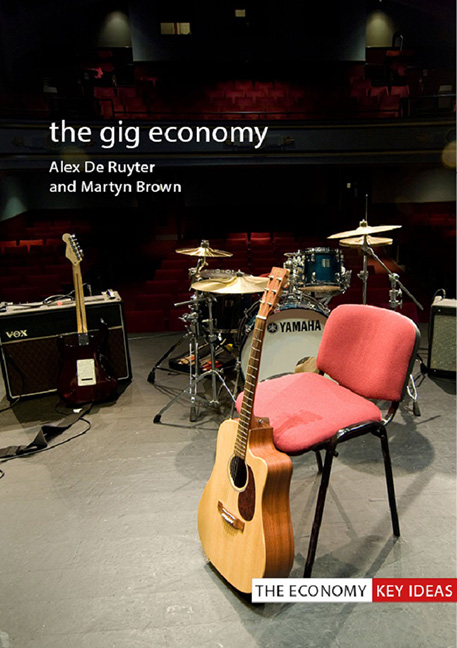1 - Introduction
Published online by Cambridge University Press: 09 August 2023
Summary
The purpose of this book is to explain in a concise manner to a non-specialist readership what is meant by the “gig economy”, how it operates and what implications it poses for the workers and businesses that operate within its confines, and what issues it raises for the wider economy and society. In seeking to assess this phenomenon, this book above all adopts a historical perspective.
A key posit is that the gig economy is just the latest trend catchphrase capturing a spectrum of flexible (or precarious) work arrangements that have existed in one form or another since the ascendancy of capitalism in the sixteenth century. Indeed, it could be argued that such work arrangements, aside from the post-Second World War welfare state phase in mature, western states, have constituted the dominant arrangement in capitalist societies. The gig economy then could be interpreted as “old wine in a new bottle”. However, the emergence of the gig economy has also been posited in terms of technological advancements that have led to the automation of certain functions and the coming together of information technology and telecommunications technologies.
This has led to the superseding of traditional firm structures, in the sense that the “transaction costs” identified by Ronald Coase in 1937 (Coase 1937) associated with contracting on the open market have been reduced by such technological change and hence lessened the perceived need for employment (as opposed to market) relationships by such firms. As such, there is a clear need to get behind the label of gig economy and gain an understanding of the objective conditions of work surrounding such jobs, gain an understanding of the motives and business models of companies that seek to utilize workers under such arrangements, and hence identify the factors that have driven growth of such jobs. In the next section, we begin by exploring the origins of the term “gig” and thereby seek to understand the evolution of its discourse to now being used to describe a key structural feature of modern capitalist economies.
Introduction
The word “gig” is used to denote many things, often bearing little relation to one another, still less to any “original” meaning.
- Type
- Chapter
- Information
- The Gig Economy , pp. 1 - 10Publisher: Agenda PublishingPrint publication year: 2019



